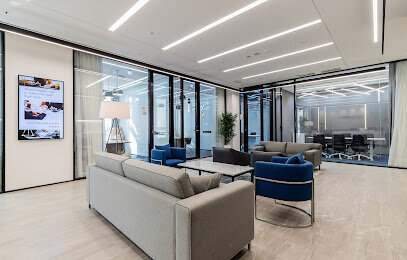Best Appeal Lawyers in South Korea
Share your needs with us, get contacted by law firms.
Free. Takes 2 min.
Or refine your search by selecting a city:
List of the best lawyers in South Korea
About Appeal Law in South Korea
Appeal law in South Korea allows for the review of a decision made by a lower court. It is a critical aspect of the Korean judicial system, providing checks and balances to ensure that justice is fairly administered. The appellate system is structured to uphold the rights of the parties involved by allowing for a second hearing in a higher court, typically the High Court or the Supreme Court, depending on the nature and significance of the case.
Why You May Need a Lawyer
Appealing a court decision involves complex legal procedures and a thorough understanding of legal principles. Some common situations where legal assistance may be necessary include:
- Unfavorable Judgment: If you believe the decision made by the court was incorrect or unjust.
- Errors in the Application of Law: If there were mistakes in how the law was applied to your case.
- New Evidence: If new evidence has emerged that could potentially alter the outcome of your case.
- Administrative Appeals: In cases involving disputes against governmental bodies or decisions.
- Complex Legal Issues: When the legal issues involved are too complex to handle without professional assistance.
Local Laws Overview
The South Korean appeal process is governed by several key legal statutes, including the Civil Procedure Act, the Criminal Procedure Act, and the Administrative Litigation Act. These laws outline the procedural steps for filing an appeal, the time frames within which appeals must be lodged, and the jurisdiction of different appellate courts. Understanding these laws is crucial for navigating the appeal process.
Frequently Asked Questions
What types of decisions can be appealed in South Korea?
Decisions made by district courts, family courts, and other specialized courts can often be appealed to higher courts under the Korean legal system.
Is there a time limit to file an appeal?
Yes, there is typically a 14-day period following the original judgment during which an appeal can be filed. This may vary depending on the nature of the case.
What is the role of the Supreme Court in the appeal process?
The Supreme Court in South Korea serves as the final appellate court in civil, criminal, and administrative matters, ensuring uniform interpretation of law.
Can all cases be appealed to the Supreme Court?
No, generally only cases involving significant legal questions or matters of public interest are accepted for review by the Supreme Court.
What is an administrative appeal?
An administrative appeal involves challenging decisions made by governmental agencies or public bodies.
Must I hire a lawyer to appeal a case?
While not legally required, it is highly recommended to have legal representation due to the complexity of the appeal process.
Can the appellate court grant a completely new trial?
Typically, the appellate court reviews the existing record and may not conduct a full trial but will assess errors in the initial judgment.
What are potential outcomes of an appeal?
Outcomes can include upholding the original decision, reversing the decision, or remanding the case back to a lower court for retrial.
How long does the appeal process take?
This can vary, but appeals are generally resolved within six months to a year, although complex cases may take longer.
What costs are involved in appealing a case?
Costs include court fees and legal representation expenses, the latter of which can vary significantly depending on the complexity of the case.
Additional Resources
For those seeking additional information or assistance, consider reaching out to the following resources:
- Korean Bar Association: Provides access to licensed attorneys who specialize in appeal cases.
- Supreme Court of Korea: Offers detailed information about the appellate system and procedures.
- Legal Aid Centers: For those who may need financial assistance for legal representation.
- Ministry of Justice: Provides information on legal services and rights protection.
Next Steps
If you believe you have grounds for an appeal, consider taking the following steps:
- Consult with a legal expert to assess the merits of your case.
- Gather all necessary documentation and evidence pertinent to your appeal.
- Ensure familiarity with the relevant deadlines and procedural requirements.
- File the necessary paperwork with the appropriate appellate court promptly.
- Engage with legal counsel throughout the process to navigate complexities and advocate on your behalf.
Being informed and proactive is crucial in effectively managing the appeal process in South Korea.
Lawzana helps you find the best lawyers and law firms in South Korea through a curated and pre-screened list of qualified legal professionals. Our platform offers rankings and detailed profiles of attorneys and law firms, allowing you to compare based on practice areas, including Appeal, experience, and client feedback.
Each profile includes a description of the firm's areas of practice, client reviews, team members and partners, year of establishment, spoken languages, office locations, contact information, social media presence, and any published articles or resources. Most firms on our platform speak English and are experienced in both local and international legal matters.
Get a quote from top-rated law firms in South Korea — quickly, securely, and without unnecessary hassle.
Disclaimer:
The information provided on this page is for general informational purposes only and does not constitute legal advice. While we strive to ensure the accuracy and relevance of the content, legal information may change over time, and interpretations of the law can vary. You should always consult with a qualified legal professional for advice specific to your situation.
We disclaim all liability for actions taken or not taken based on the content of this page. If you believe any information is incorrect or outdated, please contact us, and we will review and update it where appropriate.
Browse appeal law firms by city in South Korea
Refine your search by selecting a city.
















